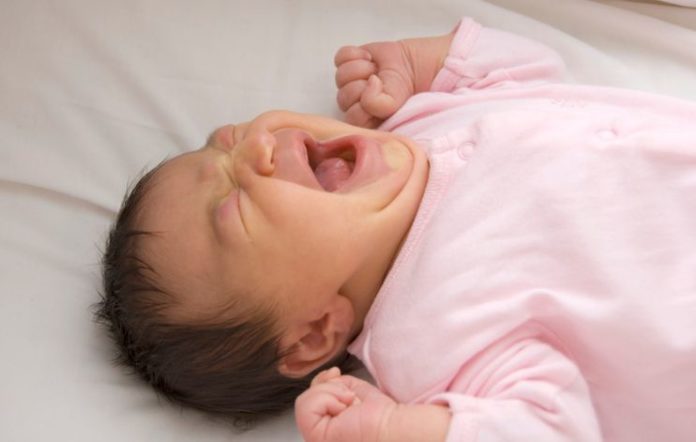Queensland research shows that a resurgence of whooping cough in babies has arisen due to the lack of effectiveness of the current vaccine.
The joint study found that children vaccinated against whooping cough with the current vaccine, were three times more likely to develop the highly contagious respiratory infection than children who received an earlier version of the vaccine.
The University of Queensland, Queensland Children’s Medical Research Institute (QCMRI) and the Royal Children’s Hospital findings were published overnight in the prestigious Journal of the American Medical Association (JAMA).
Although known to be safer than its predecessor, results from the study conducted by QCMRI researcher Dr Sarah Sheridan showed the current vaccine is less effective.
QCMRI Senior Research Fellow Associate Professor Stephen Lambert said the new vaccine for whooping cough had been introduced in 1999 into Australia’s national immunisation schedule as it was found to have far fewer side effects than the previous vaccine. Associate Professor Lambert said there were a number of important messages from the new research for both clinicians and parents.
“The message for clinicians is not to exclude whooping cough as a diagnosis just because a child has had all of their vaccines,” he said.
“And for parents, they should be reassured that vaccination still offers the best protection against developing whooping cough.
“Infants who aren’t vaccinated have a much greater risk of contracting the disease and developing serious complications.”
Associate Professor Lambert said before 1998 the whooping cough vaccine was made up of whole cells of the dead Bordetella pertussis bacteria.
“While it was generally a highly effective vaccine it commonly caused local reactions such as redness, swelling, and pain at the injection site and less frequently caused systemic adverse events such as fever and prolonged crying,” he said.
In 1998 an acellular vaccine, made up of a few parts of the pertussis bacteria, was introduced with fewer side effects and what was thought to have roughly similar efficacy. The QCMRI study looked at more than 40,000 Queensland children born in 1998 who were vaccinated against whooping cough. It found that those treated with a full course of the newer acellular vaccine were three times more likely to have developed whooping cough in the current outbreak than those who received the previous whole cell vaccine.
“The increase in risk associated with the switch to acellular vaccine is small, representing about 1 extra case of whooping each year for every 500 fully vaccinated children,” Associate Professor Lambert said.
Associate Professor Lambert warned however, that it was still absolutely critical that all parents made sure their children were vaccinated against the serious disease.
“We know from Queensland data that the current acellular vaccine is still highly effective, and those who are unlucky enough to get whooping cough after being vaccinated will have a milder illness for a shorter period of time and be less infectious to others than those who have not received the vaccine,” Associate Professor Lambert said.
“But these findings could go some way to explaining why we are currently seeing a resurgence of pertussis in younger age-groups in Australia.
“In making the switch in vaccines in 1999 we may have traded off some of the protection whole cell vaccines provided in exchange for a better tolerated vaccine.”
“Looking at the bigger picture, it shows us that we don’t yet have the perfect whooping cough vaccine and it gives us cause to work toward developing a more effective as well as a safe vaccine for whooping cough.”
Whooping cough (or pertussis) is a highly contagious respiratory infection that begins with flu-like symptoms such as a blocked or runny nose, sneezing, mild fever and mild cough. Thick, sticky mucus can develop in the windpipe, which makes it difficult to eat, drink and breathe. While the infection is generally milder in adults, if passed onto vulnerable babies it can be life-threatening.
Source: University of Queensland











